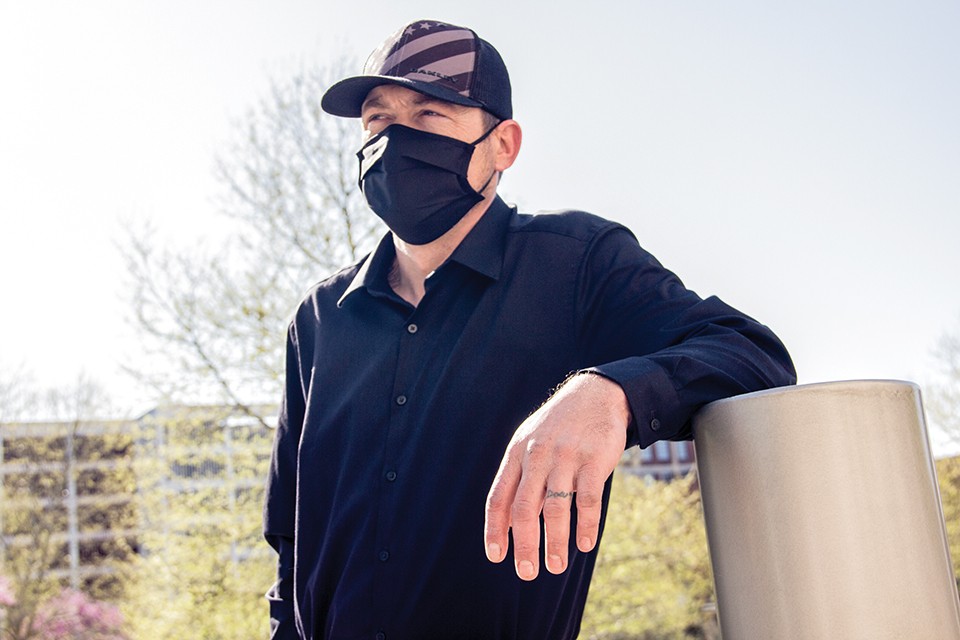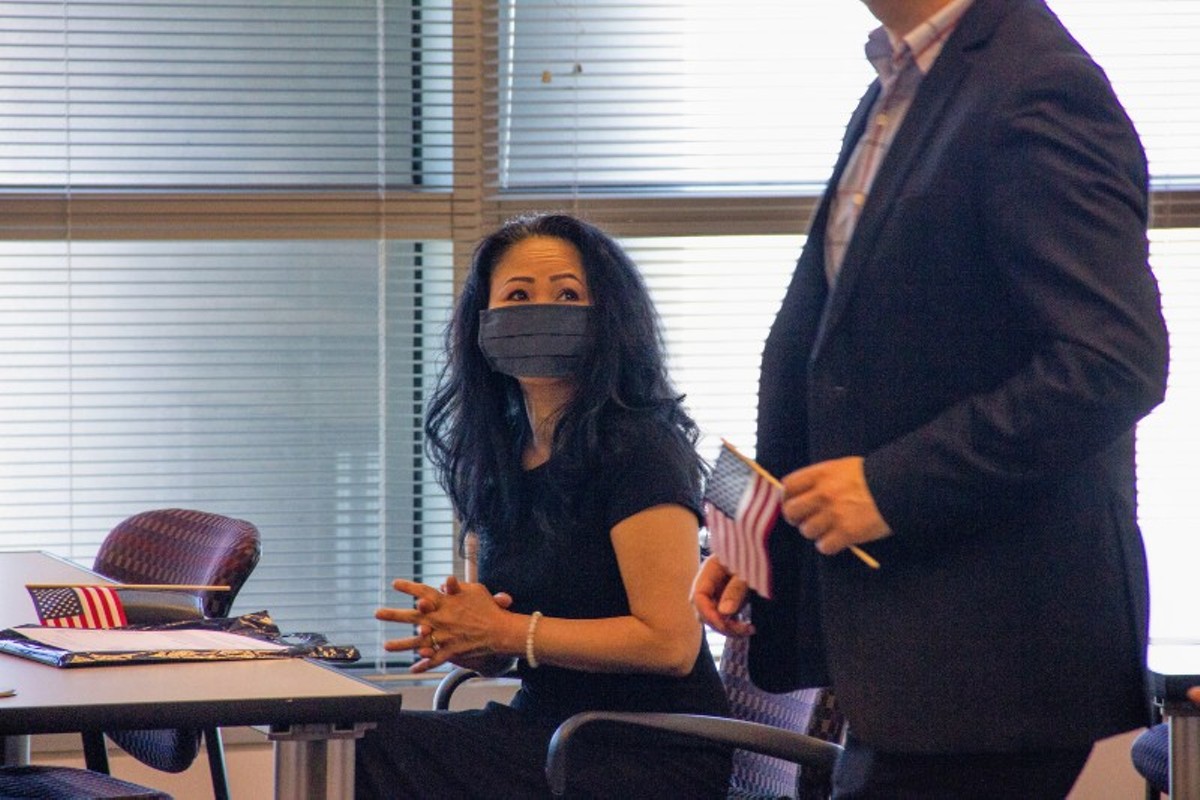Dow's move to America had given her a new life, a new language and new family — but the formative lessons she learned about America, and her legal status in it, were filtered through her stepfather, who she describes as an emotional abuser who "would treat me and my mom like we were his slaves."
"Needless to say," she adds, "he would always tell me, 'You're a citizen, you're a citizen, you've been living here your whole life.'"
Although her stepfather's treatment motivated her to begin supporting herself at sixteen, it was his failure to tell her the truth about her citizenship status that would later threaten to destroy her life. In reality, she was living a delayed catastrophe that needed just one mistake, one opening, to drag her away from what she thought was her home.
With Justin's injury, that catastrophe arrived.
"I've never asked for help, I've always been independent, and I didn't want to let Justin know about the garnishments taken out for the hospital bills," Dow admits. "I was working so much, and I'm not proud of what I did by any means."

On that day in January 2012, a tearful Dow confessed to her husband that she had taken the family's financial problems into her own hands — and at some point, she had crossed a line. Over years, she had been skimming money from the Cicis vending machines and deposits to keep their family afloat. And her secret had been revealed.
That day, she said, Cicis managers were called into a meeting to learn that the owners had discovered evidence of missing money. Dow returned home to Justin in a panic.
"We sat down and talked," Justin recalls. "We decided she just needed to go to work and tell them."
That's what they did. On January 13, 2012, Dow confessed the thefts to the Farmington police. She was booked, photographed and released. Two weeks later, her mugshot was published by the local Park Hills newspaper, the Daily Journal, which cited the department's probable cause documents and the fact that Dow had worked as a manager at Cicis for years.
Dow was charged with a class B felony, a crime which at the time carried a maximum prison sentence of fifteen years in prison. But she was a mother of three and had no criminal record, and so about a year later, in December 2013, she pleaded guilty and was sentenced to probation. She was ordered to repay the owners of Cicis restitution of about $50,000.
"We thought it was over," Justin says. Dow thought so too. She found a new job as a line manager in a produce warehouse, and the family tried to move on from the shame as the news coverage of her arrest spread across the close-knit community.
"I took responsibility for it, but my heart hurts," she says. "My kids and husband had to go through that. It wasn't fair to them because of what I did."
But her guilty plea wasn't the end of the story — it had set her deportation in motion.
On March 13, 2014, Justin dropped Dow off at the local probation office. It was her third visit since her guilty plea, a part of the routine required by her probation. Dow remembers being told that she was to meet a new parole officer who would be handling her case.
"We were just sitting down and talking," she recalls of the meeting that day in the parole office, "and all of a sudden there were two officers behind me. One of them asked me my name, and I said, 'Who are you?' Of course, he says he's with ICE, and I started crying."
Dow was told she was being deported, and moments later she was handcuffed and led out back to a waiting car. She begged them to let her say goodbye to her husband, who was waiting in the parking lot on the other side of the probation office.
Instead, Justin says that two agents approached his car, "guns out and saying they got my wife and wanted her IDs and stuff."
Justin was stunned. "I said, 'What do you mean you got my wife?'"
The agents identified themselves as members of the U.S. Immigration and Customs Enforcement. As they took Dow's materials, Justin remembers one of the agents remarking, "Her mom is not a citizen neither, she's just never been in trouble."
Justin left the parole office alone, his head spinning. Like Dow, he'd taken her citizenship for granted — and so what he'd just experienced made no sense. Dow had lived under her stepfather's last name, had a social security number, paid taxes and hadn't traveled out of the country for more than 30 years. She and Justin had a young daughter together. Her eldest son from her previous marriage was in the military, and a second was in the process of enlisting.
Justin was still recovering from the mechanic's shop accident. He relied on Dow for support as his body healed, and now he was returning to the family's trailer, a little girl waiting for him inside, and he was alone.
"At the time my daughter was four, and we had sheltered her from this, we didn't want her to have to deal with adult situations," he says now. "I had been telling her that I had to take mama to the doctor or something, but then I come home without mama, and I had to figure out ..."
Justin's voice cracks.
"... what to tell her, that mama might never come home again."






